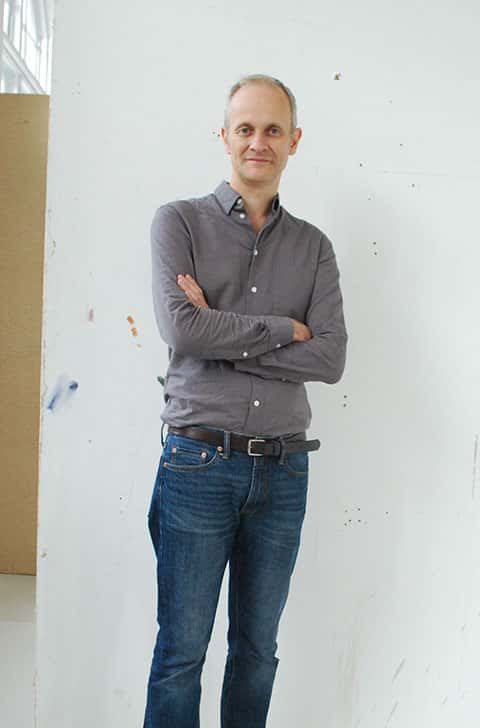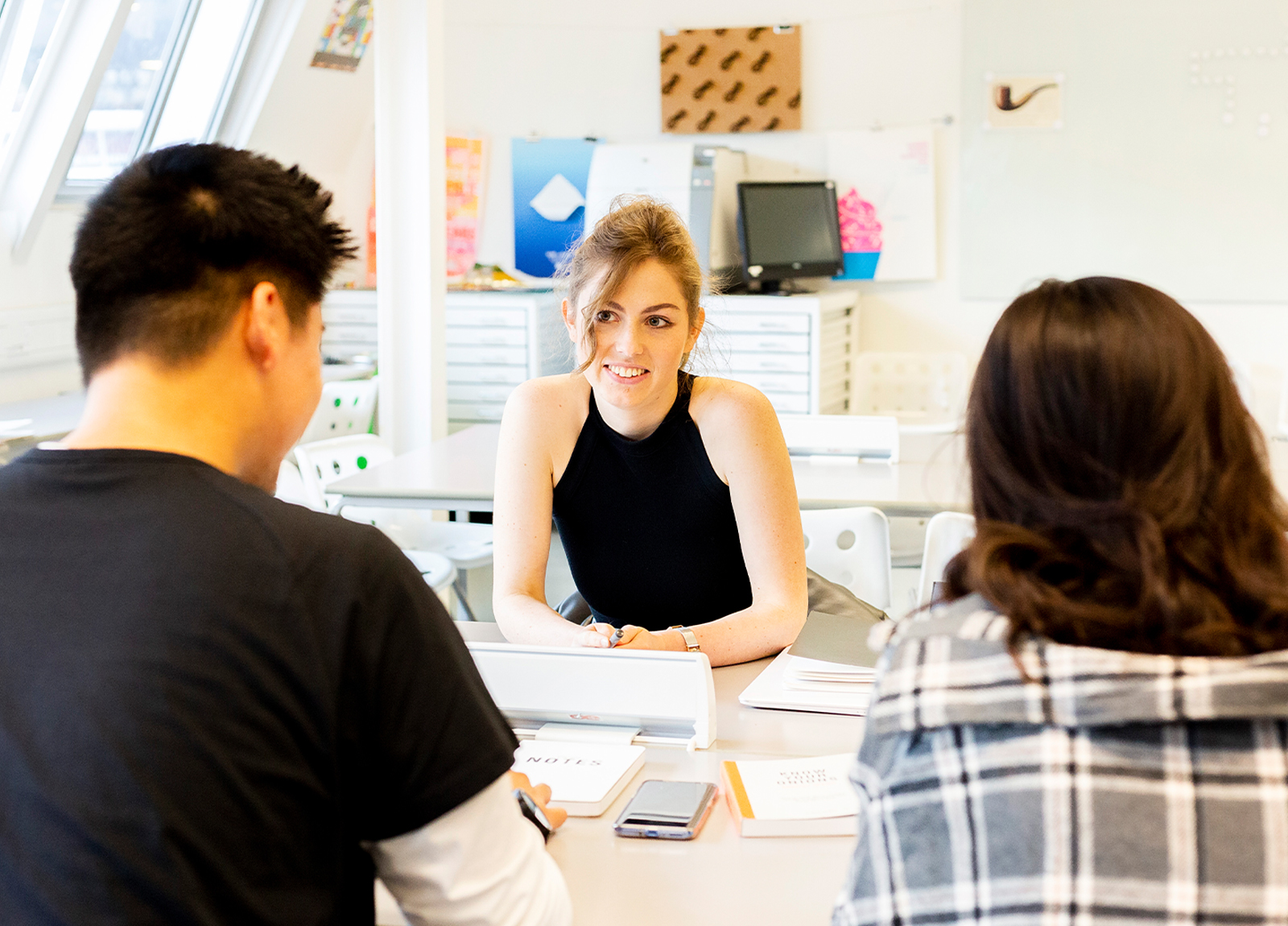
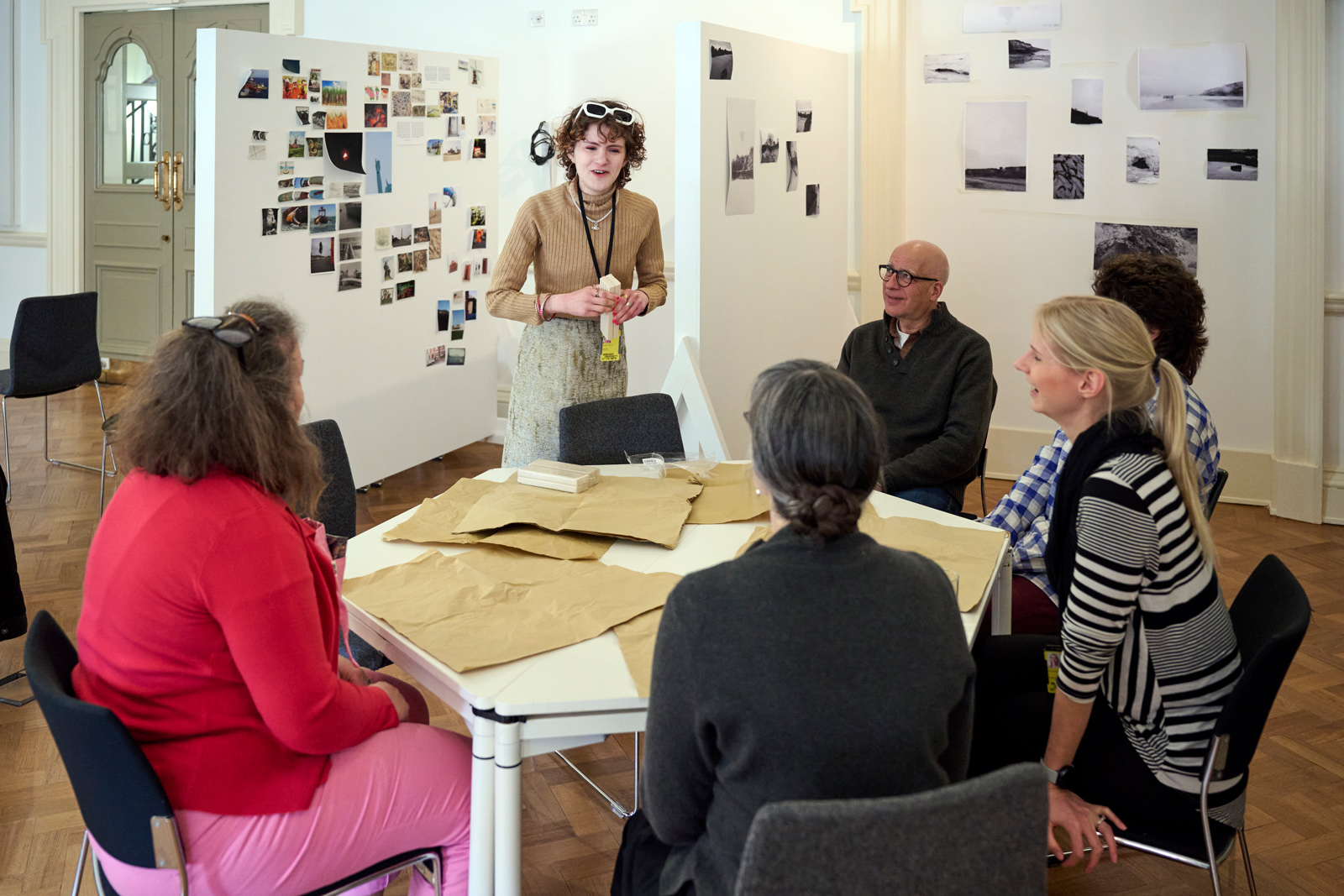
Creative Education MA
Our MA in Creative Education is a two-year top-up qualification* that will enable you to develop expertise in the field of teaching and learning through critical evaluation of research and pedagogical practices.
-
Course Duration
Part-time 2 years (online)
-
Annual Fees
-
Course Start
September 2026
- How to Apply Request a prospectus (opens in a new window)
Building on your previous study of a related Postgraduate Certificate in Higher Education (PGCHE) or attainment of Advance HE Fellowship (Descriptor 2) Our MA Creative Education offers a comprehensive understanding of the contemporary landscape of creative Higher Education (HE). This course supports you to develop your knowledge of relevant pedagogies, integrate educational theory with your teaching practice and gain new insights into creative education, your own specialist subject, and the broader realm of Higher Education.
The course equips you with the skills you need to apply your learning to your teaching practice; making the learning experience directly relevant to your career goals. The MA Creative Education is designed to advance your skills as an independent learner, with a strong emphasis on providing the necessary support and guidance for your professional development. We will support you to manage and plan your independent study time as you become an increasingly autonomous learner/practitioner. This ensures that you feel reassured and confident in your learning journey.
Course delivery
The MA Creative Education programme is delivered entirely online, featuring a combination of synchronous group sessions using Microsoft Teams. Sessions take place in the early evening on a set day of the week during term time from September to August. Group sessions are interspersed with individual online tutorials and independent study time. All students have access to resources on the University’s Virtual Learning Environment (VLE) and library website. This highly interactive learning model accommodates a variety of learning styles and is designed to build on your existing professional and life experiences. You will be taught by active educators, practitioners, and researchers with expertise in creative education.
Course Details
The MA Creative Education comprises five related, but independent 20-credit units at level 7 (M-level), plus a 40-credit research project in the final year. Units are delivered and assessed over a series of teaching blocks and consist of a total of 600 learning hours per year: 200 for each 20-credit unit and 400 for the final dissertation.
Year 1
The first part-time year comprises three 20-credit units that build on the 60 credits represented by your previous PGCHE/PGCE or Advance HE Fellowship. Extending your engagement with continuing professional development, the MA Creative Education focuses on the wider context of creative arts pedagogy including the history of radical progressive approaches in art schools worldwide.
Unit MAEd4: Models of Teaching and Learning
Learning is a complex process influenced by various psychological and pedagogic models that shape our contemporary understanding. This unit will introduce you to influential models such as behaviourism, constructivism, experiential learning, and critical pedagogy, exploring the philosophies and epistemologies behind them and their implications for teaching practice. You will reflect on and critique your own pedagogic practice through different teaching philosophies, identifying the advantages and disadvantages of alternative models and analysing the origins and implicit values of your existing approach. You are expected to actively research beyond theoretical materials, delving deeper into areas of particular interest and familiarizing yourself with the debates and discourse around them.
Unit MAEd5: Histories of Creative Education
This unit explores the history of creative education with a global perspective but a focus on the UK. Through a series of lectures, workshops and activities you will be tracing its roots from the 16th century Academies of Rome and Paris through to the formalisation of higher education in the twentieth century. You will learn about the key institutions, philosophies, and legislation that shaped today’s landscape. This will include some of the political and legislative events that have shaped the sector including the Coldstream and Summerson reports, the Dearing Report and the Teaching & Higher Education Act 1998. This unit will develop your historical knowledge of approaches to creative education and equip you to think critically about contemporary discourses and arguments. Through reflection and experimentation, you will gain greater insights into the implicit assumptions and values of your own teaching practice.
Unit MAEd6: Contemporary Issues in Higher Education
This unit will require you to take charge of your own learning and navigate a collaborative project with support and facilitation from the course team. You will gain direct experience of Problem-Based Learning (PBL) as you work together to investigate a contemporary issue within the creative Higher Education sector, leading to a final group presentation that will be an opportunity to propose solutions to a public audience within the university. You will be expected to become familiar with some of the Higher Education sector’s main channels of communication, and to develop an awareness of current policy discussions. This unit is an example of co-creation through collaboration, and you will be expected to manage the complexities of a group research project, developing your interpersonal and professional project management skills.
Year 2
Year 2 of the MA Creative Education consists of a 20-credit unit introducing you to academic research and a 40-credit desk-based or action research project, which is the culmination of your experience on the course.
Unit MAEd7: The Academic Research Process
Carrying out academic research is an essential part of a Lecturer’s activities within Higher Education. On this unit you will learn about the range of research activity that takes place within creative practice, from practice-based enquiry through to publishing in journals and participating in conferences. As academic journals play an important role in research you will be taken through the peer-review process and investigate the house-styles of leading journals, including citations and the construction of an academic bibliography. You will undertake a general survey of academic journals and compare some of their differing demands in terms of form, style and content, identifying those which are most appropriate for your own discipline and interests. You will be encouraged to try out contrasting methodologies to compare the kinds of outcomes they generate. You will explore research methodologies, dissemination, and think about impact within and beyond academia.
Unit MAEd8: Major Research Project
The Major Research Project is the culminating part of MA Creative Education and builds on the taught units of your course so far. It will deepen your understanding of educational research, and the strengths and challenges of carrying out sustained research in education that reflects your own professional priorities. Through researching an aspect of professional practice within your own subject specialism or professional practice, you will be challenged to enrich your knowledge of relevant education-related issues. You may have developed your ideas during earlier units and can build on key points during your research. The subject of your research will be of significant importance to you and your professional practice. There is the freedom to determine your own agenda in negotiation with the course team, and the opportunity to contribute to best practice and pedagogic research within your own institution.
Download course specifications
Learning and teaching
The course is delivered through a variety of engaging learning and teaching methods.
-
Lectures
-
Seminars
-
Tutorials
-
Technical labs
-
Independent and group work
Assessment
Our assessment methods will vary based on the unit you choose and provide a comprehensive measure of your learning and progress. These methods may include:
- Critically reflective essay
- Course work
- Presentations
- Learning journal
- Reflective evaluation
- Body of creative work
- Reflective research report
- Team project evaluation
- Major project
- Supporting documentation
Some of the people you’ll be working with
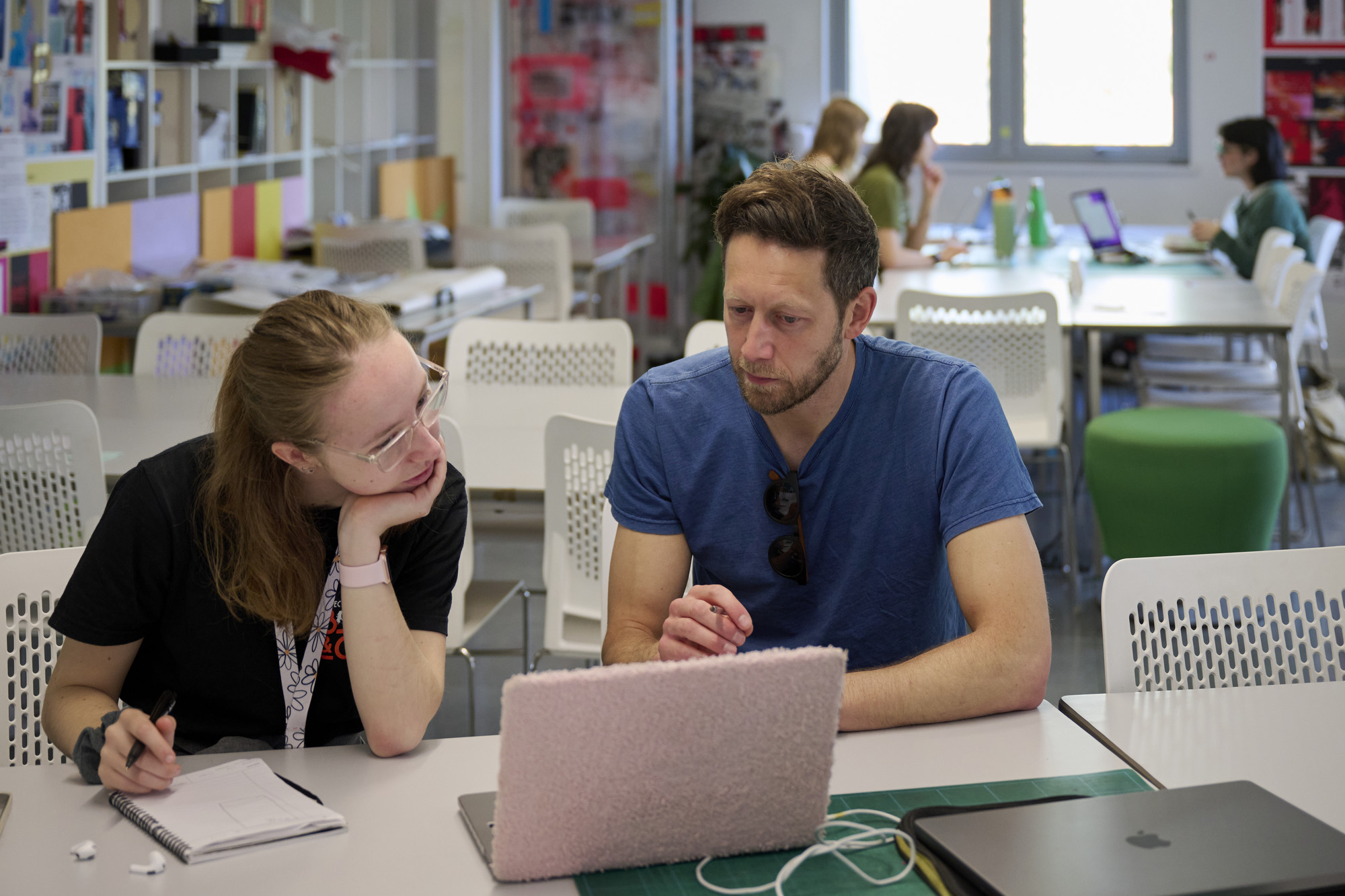
Typical career paths
Gaining a Master’s in Creative Education will open up a wide range of career opportunities in the field of education and arts education, including senior academic roles, coaching and mentoring, or educational positions within the gallery sector. You may also wish to continue your studies through the completion of a PhD.
- Doctoral study
- Subject specialist tutor
- Curriculum designer
- Educational researcher
- Senior fellowship of the Higher Education Academy
Entry Requirements
Our MA Creative Education is a two-year top-up Level 7 award that is designed specifically to build on your previous study of a related Postgraduate Certificate in Education (PGCE), Postgraduate Certificate in Higher Education (PGCHE), or attainment of Advance HE Fellowship (Descriptor 2).
Successful applicants will already have attained key pedagogic skills and experiences. The MA Creative Education will build on these to explore the wider landscape of contemporary learning and teaching.
How to apply
Home
Applications to our postgraduate courses should be made directly to Norwich University of the Arts using a Postgraduate Application Form.
Applications should be returned to admissions@norwichuni.ac.uk
Please see our Terms and Conditions and Admissions Policies for further details.
International
Postgraduate applicants can only apply directly by completing the below online application form or emailing the downloadable form to ioadmissions@norwichuni.ac.uk
International students requiring a visa should apply as soon as possible in the year they wish to start. Email our International Team for more information. Please see our Terms and Conditions and Admissions Policies for further details
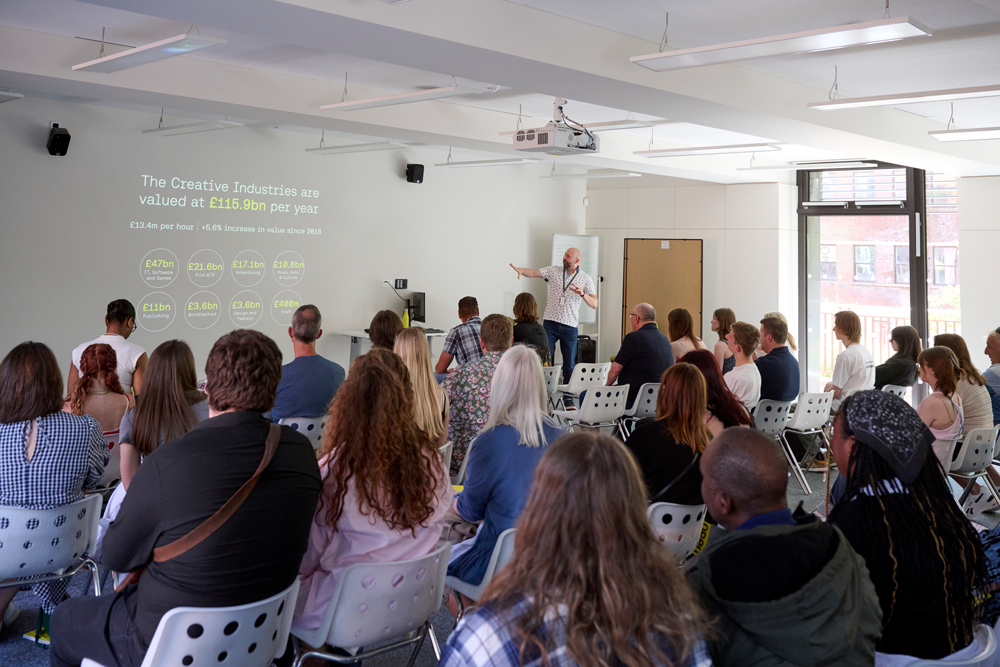
Latest news
-
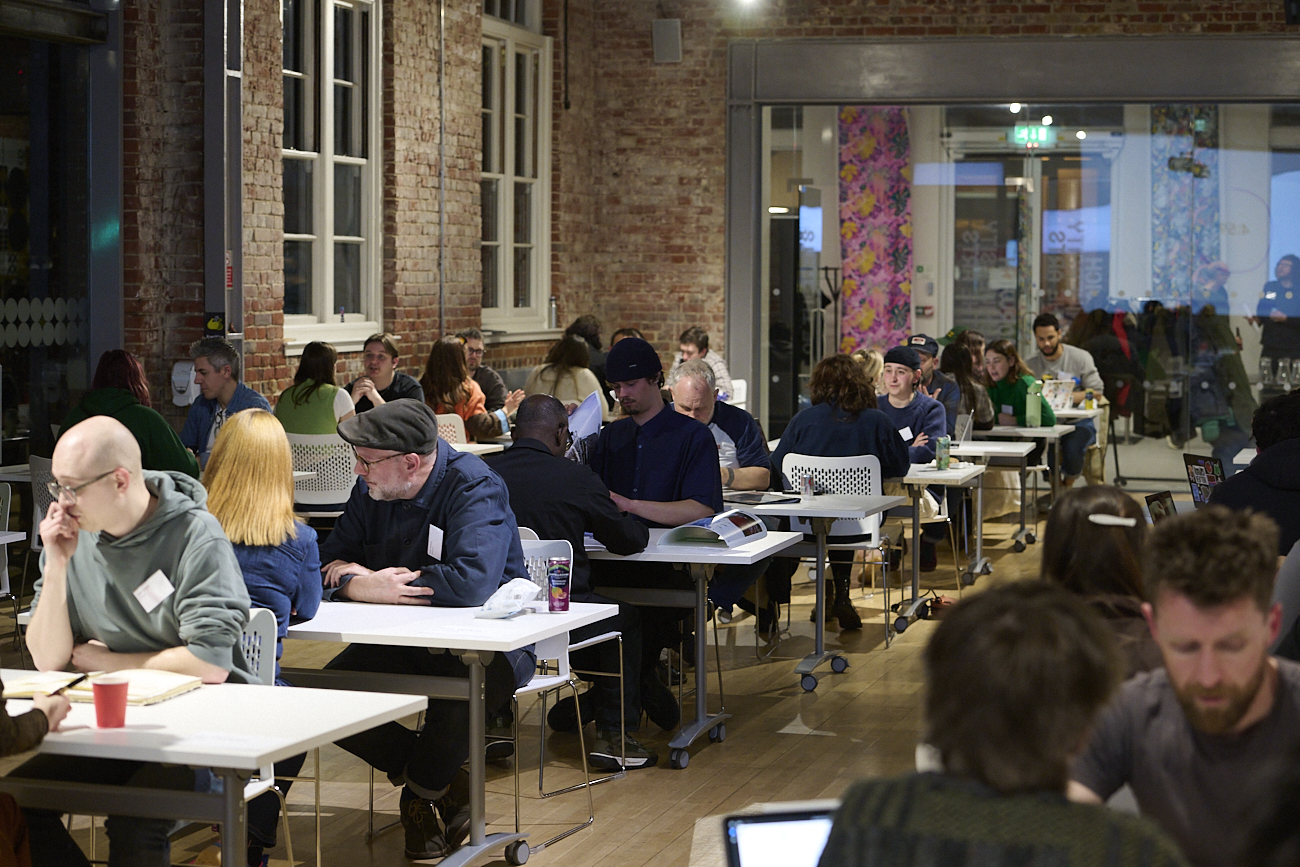 Employability •
Employability •Norwich University of the Arts celebrates 10 years of the Big Book Crit
Hundreds of Norwich students have shared their work with leading creative professionals over the last decade. -
 East Gallery •
East Gallery •Announcing the East Gallery Fellows 2025-2026
Norwich University of the Arts is pleased to announce the selected awardees of this year's East Gallery Fellowship. -
 BA Business Management •
BA Business Management •Dean of Creative Education Awarded Prestigious Principal Fellowship from Advance HE
The University is delighted to announce that Hilary Carlisle, Dean of Creative Education and Professor of Design, has been awarded Principal Fellowship of the Higher Education Academy (PFHEA) by Advance HE -
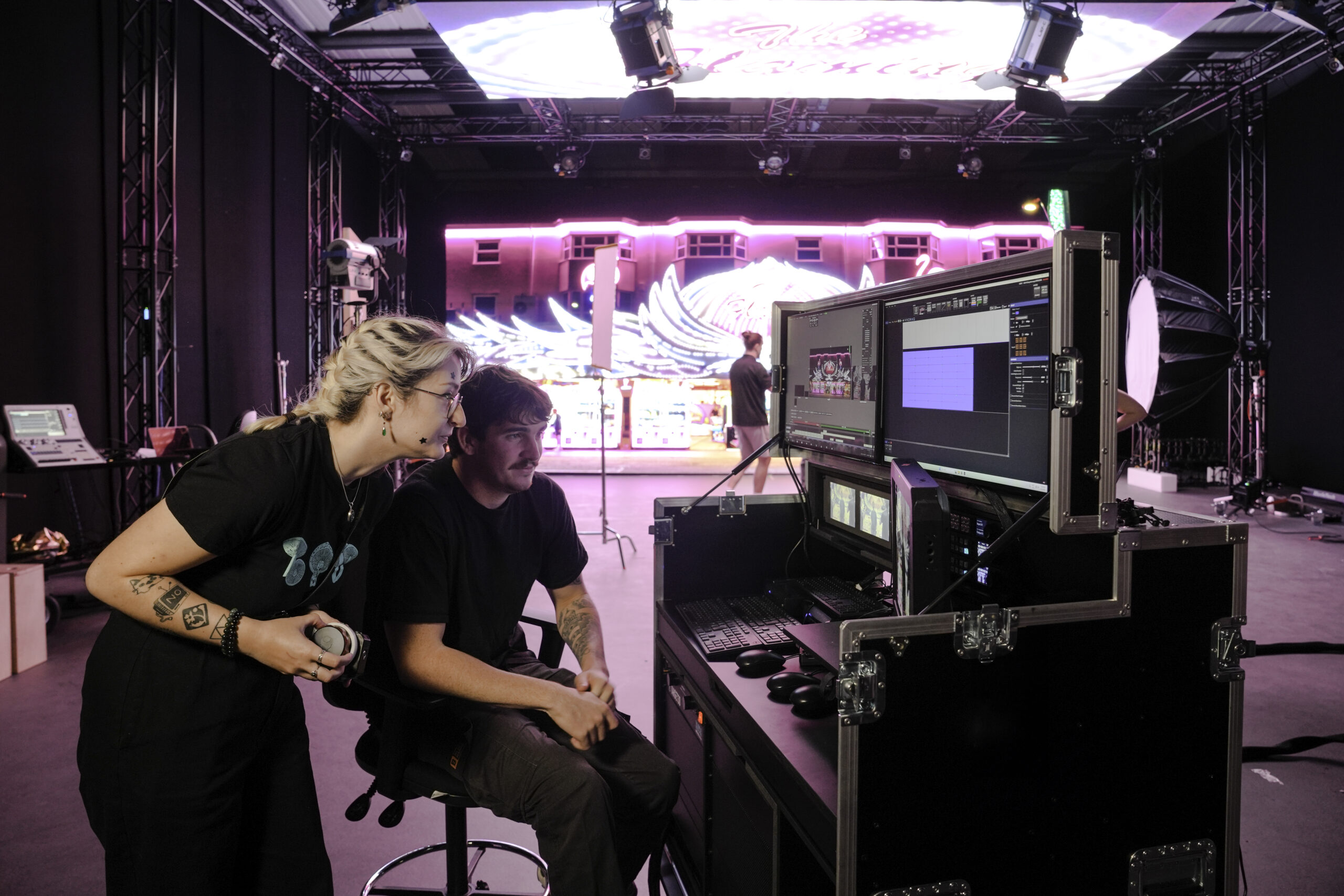 BA Degree •
BA Degree •Norwich University of the Arts to Host ELIA Academy 2027
Norwich University of the Arts is delighted to announce that it has been selected as the host institution for the ELIA Academy 2027. -
 BA Business Management •
BA Business Management •In conversation with Norwich’s newest lecturers in Marketing and Business Management
We joined Norwich's newest lecturers, Stephen Balmer-Walters and Laurie McAllister, to find out more about the University's Marketing and Business Management courses. -
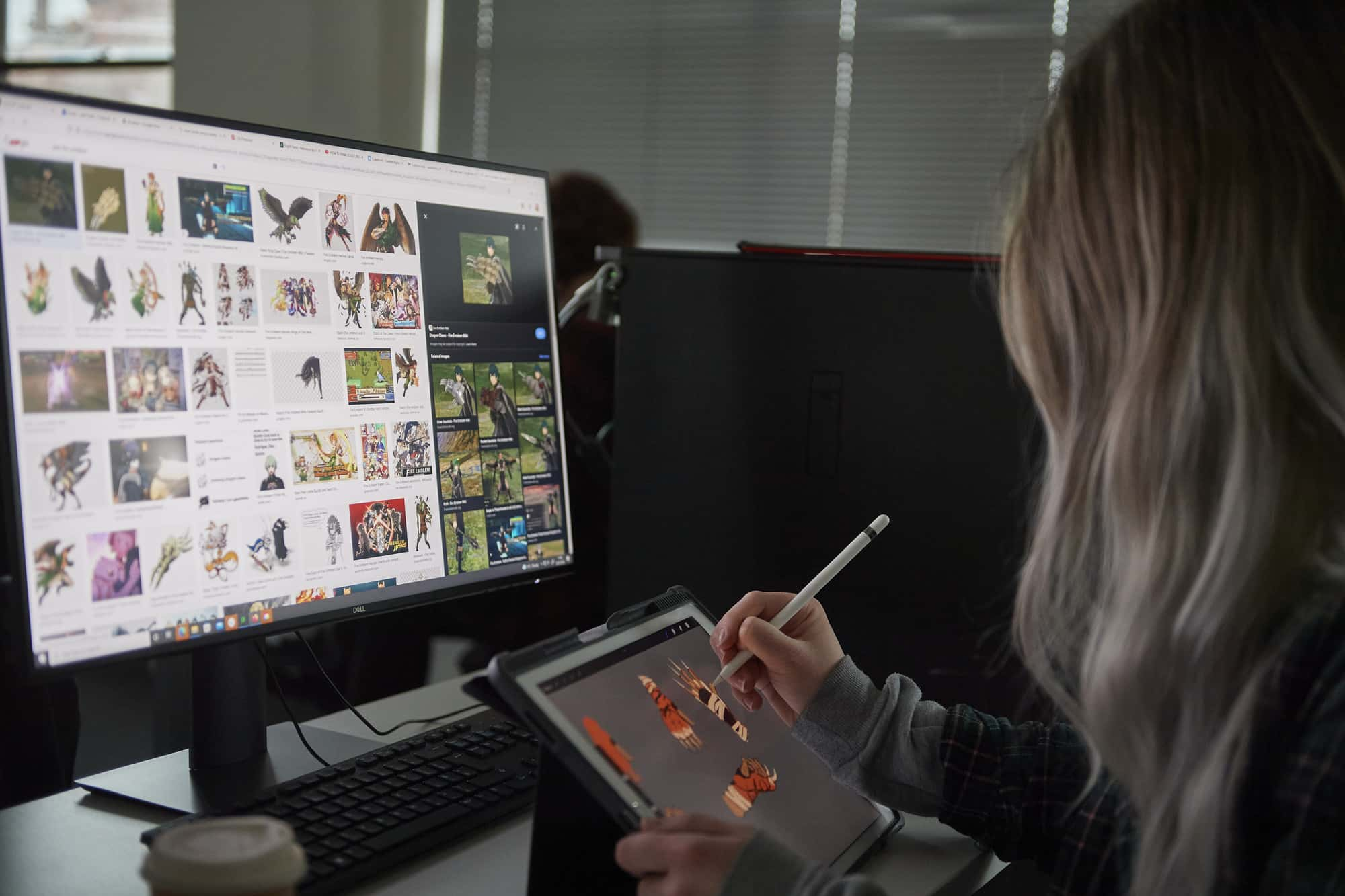 BA Games Art and Design •
BA Games Art and Design •East of England set to become UK’s next Games Cluster, says landmark report
A major new report is calling for the creation of a Games Cluster for the East of England — positioning the region as a national leader in creative technology and immersive media. -
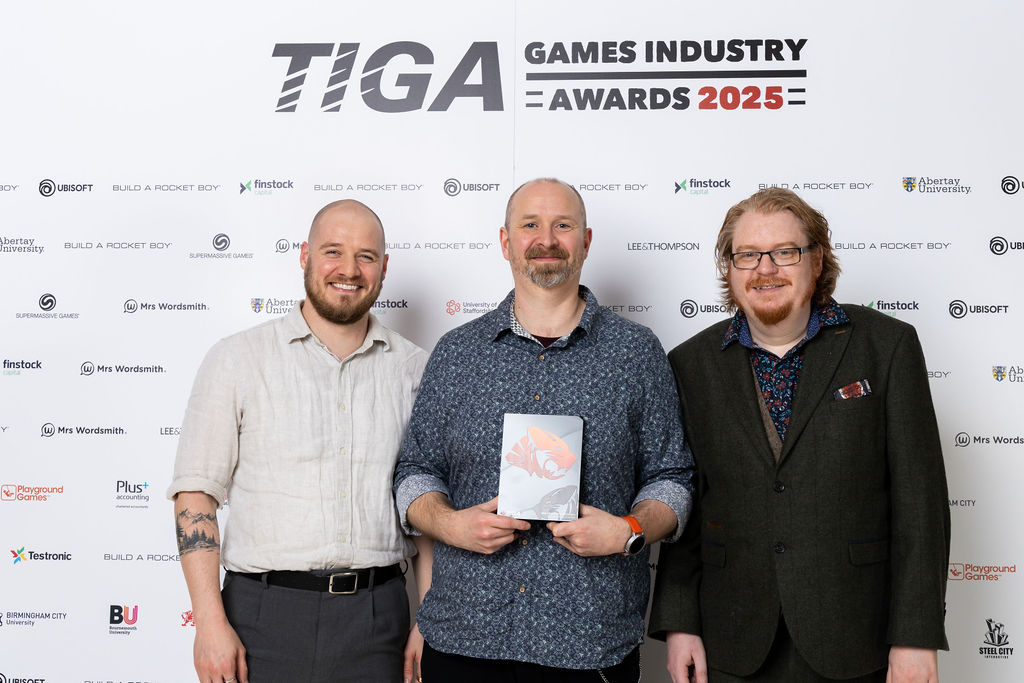 BA Games Art and Design •
BA Games Art and Design •Norwich awarded Best Education Initiative at the TIGA UK Games Industry Awards
TIGA, who represent the UK video games industry, have recognised the University’s commitment to graduate success and industry-focused learning in their 2025 awards. -
 BA Animation •
BA Animation •Cutting edge Sony Virtual Production Studio puts Norwich on the map for the future of film and gaming
Norwich University of the Arts and Sony open new landmark facility for students, creators and the community. -
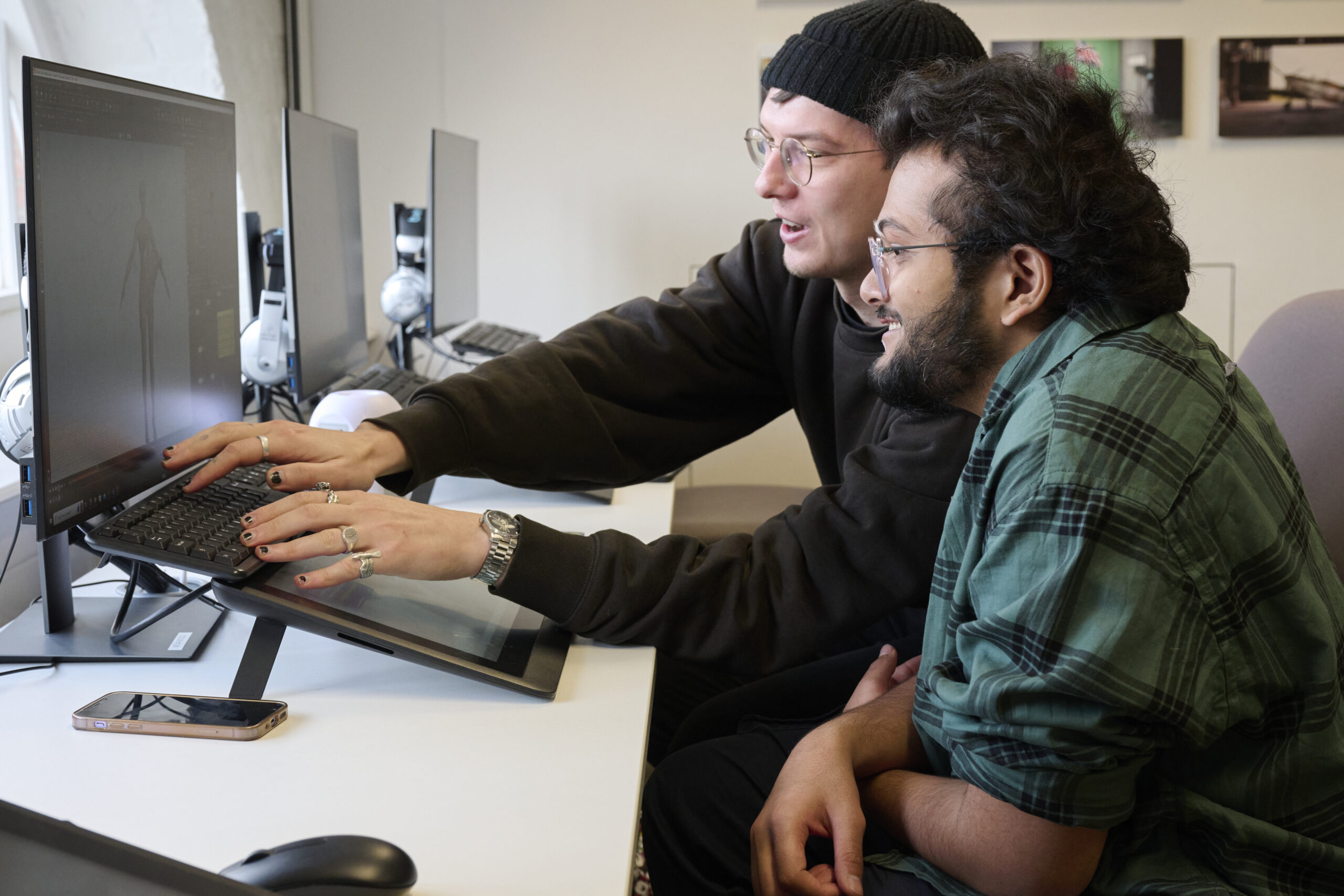 BA Animation •
BA Animation •Norwich named top UK university for production excellence in visual effects
The University has been placed in three categories in the 2025 Rookies Global School Rankings, including the top five for Production Excellence – Visual Effects. -
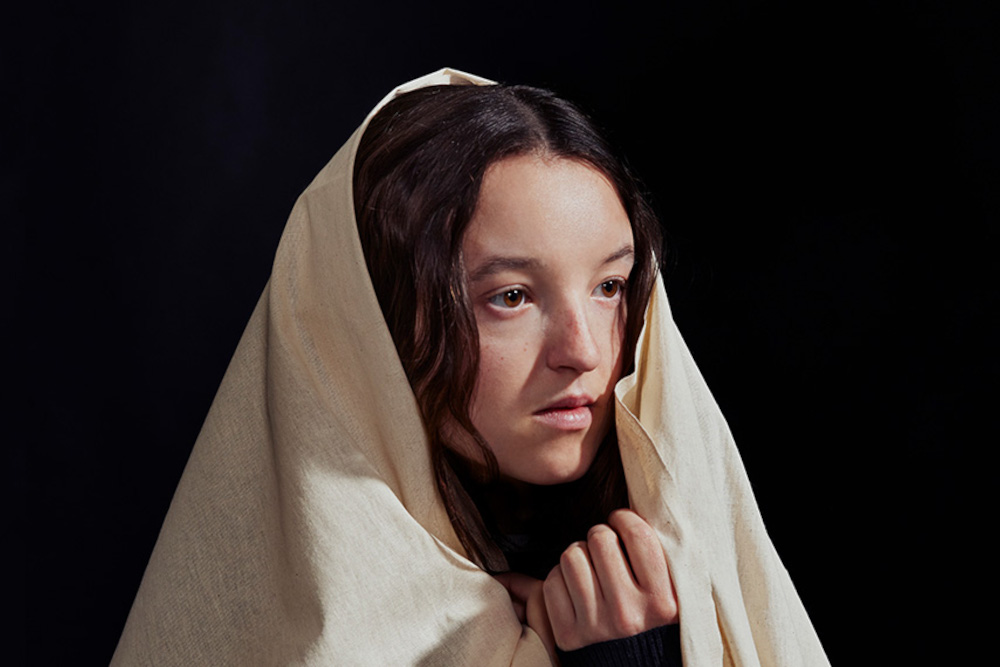 BA Photography •
BA Photography •Entries open for Norwich's 2026 Beyond the Frame photography competition
Entries are now open for our annual photography competition, open to students aged 11 to 19 around the world. -
 BSc Degree •
BSc Degree •Norwich University welcomes new academics to its Psychology and Computer Science courses
Lyndsey Wallace joins the University as Senior Lecturer for BSc (Hons) Psychology, with Jawwad Chattha joining as Course Leader for BSc (Hons) Computer Science. -
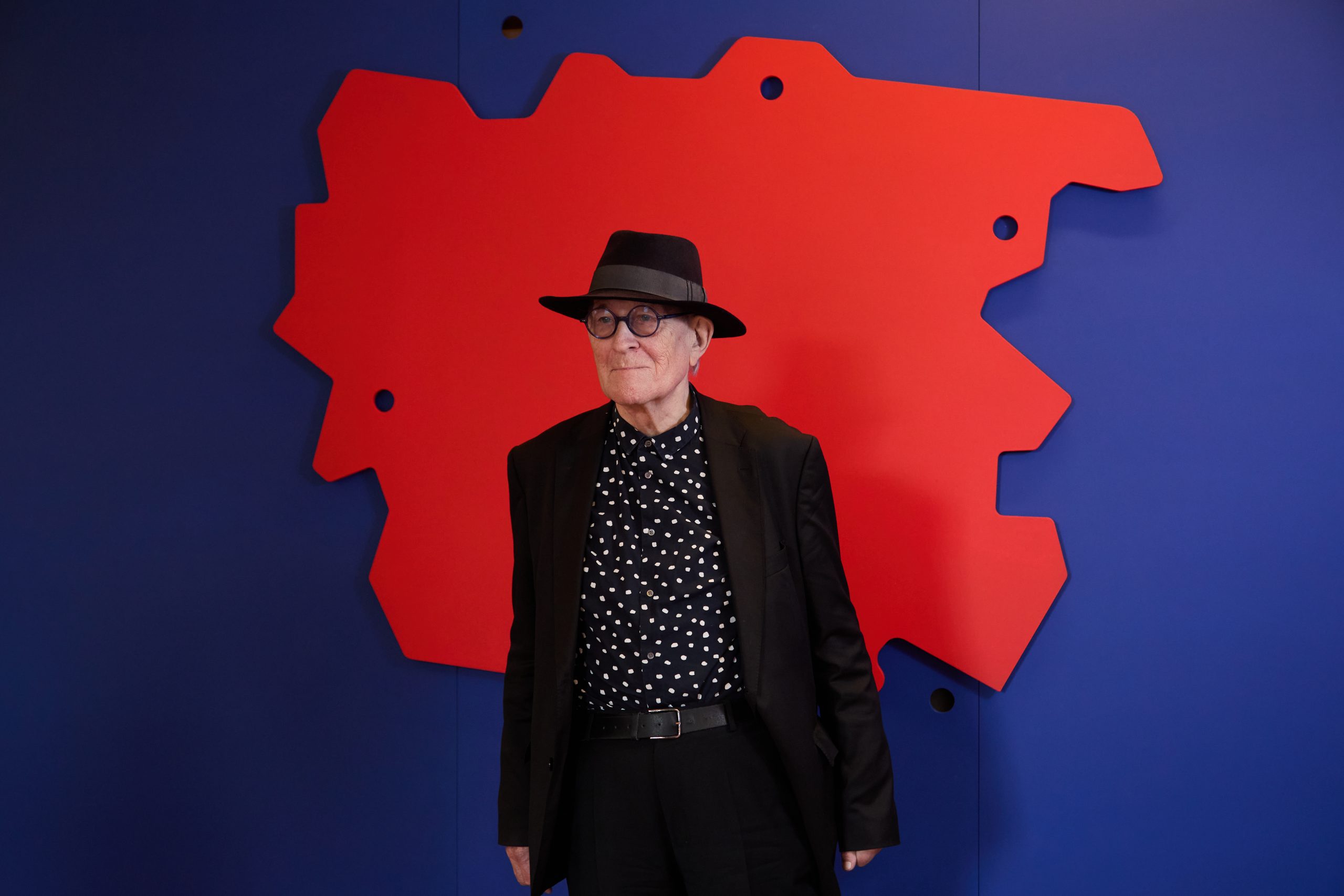 BA Architecture •
BA Architecture •Norwich University of the Arts presents the Peter Cook: Wonder Hub
Norwich University has launched the Peter Cook: Wonder Hub, a vibrant and interactive space for thinking, making, showcasing and debating the creative arts. -
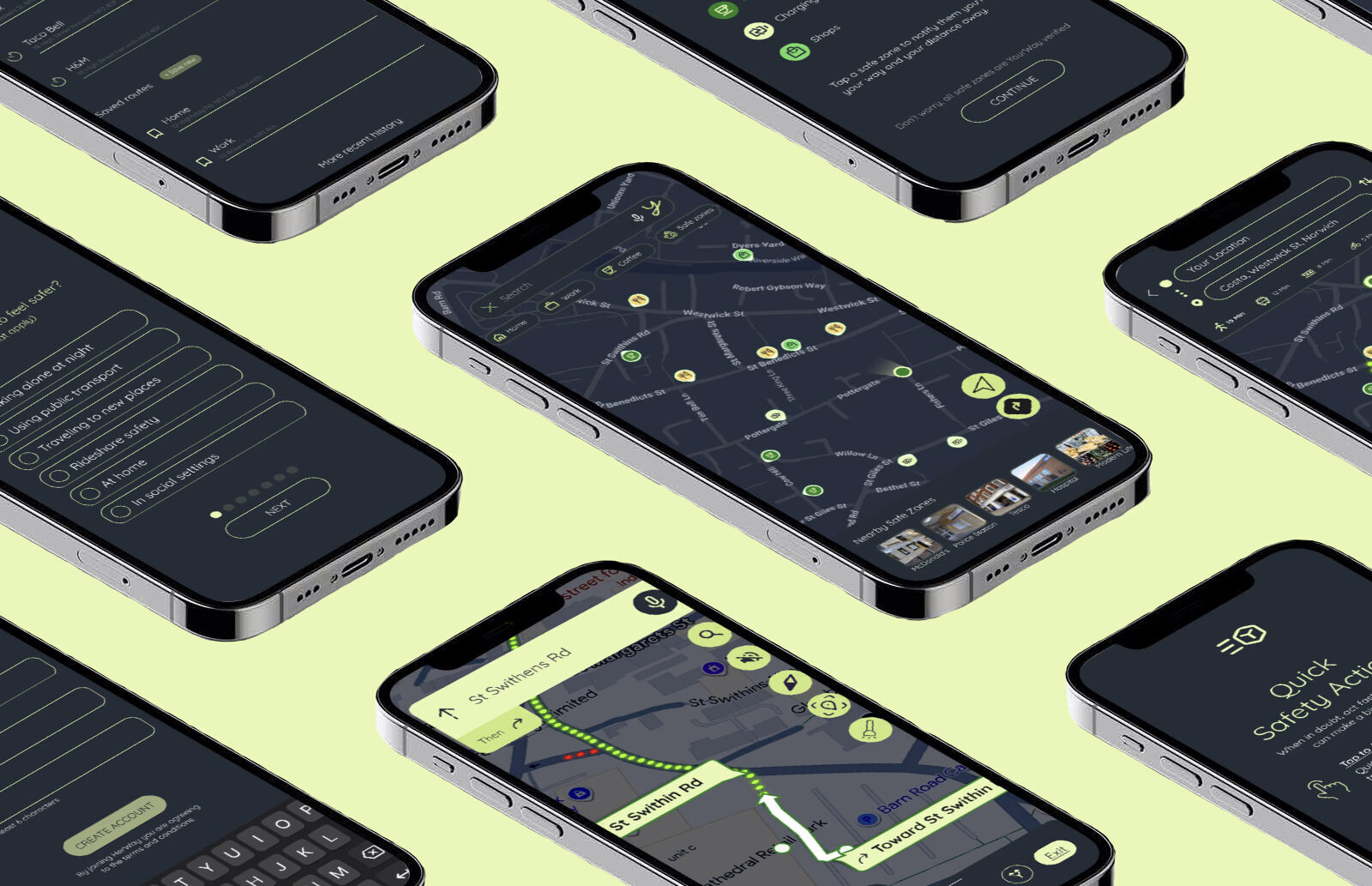 BA Graphic Communication •
BA Graphic Communication •Norwich students celebrate success at 2025 Creative Conscience Awards
Students from Norwich University of the Arts have been recognised across categories in this year’s awards, which showcase work focusing on social or environmental impact -
 BA Games Art and Design •
BA Games Art and Design •Norwich graduates recognised at TIGA UK Games Education Awards
Charlie O'Shea, BA (Hons) Games Art and Design has been named 'Outstanding TIGA Graduate of the Year: Designer' -
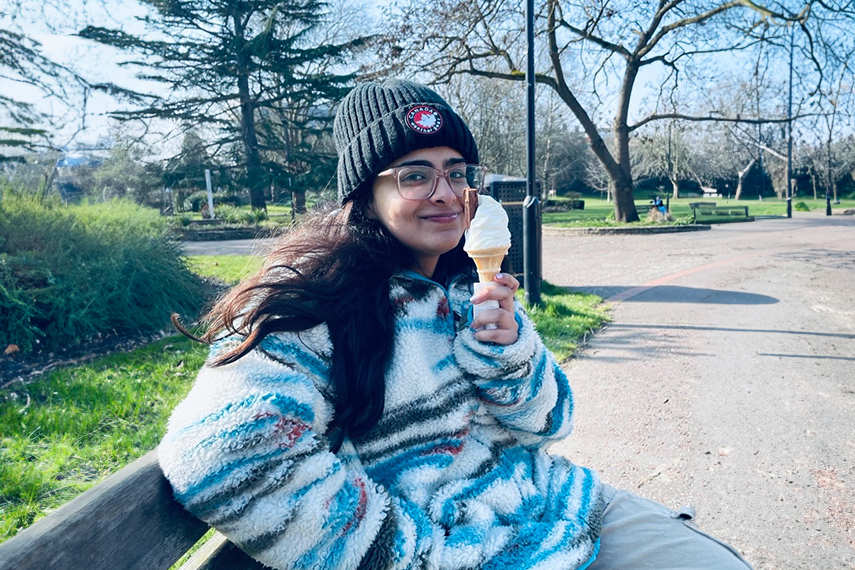 BA Film and Moving Image Production •
BA Film and Moving Image Production •Dear future international students – Diya Vaya, BA (Hons) Film and Moving Image Production
Diya writes about the experience of moving to Norwich from Nairobi, and her advice to future international students. -
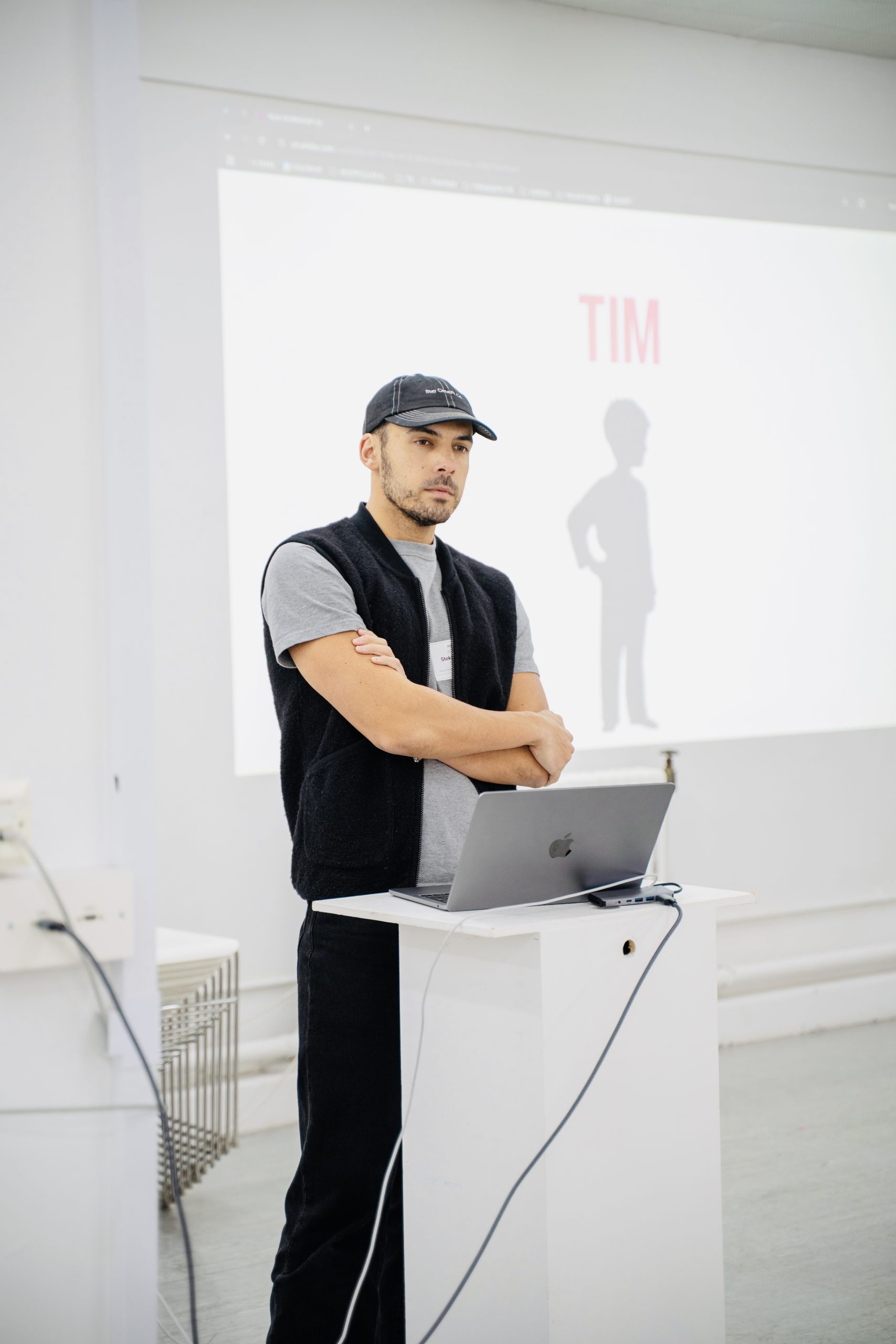 Course •
Course •Inside Interchange Week with Stokely Howard of Trendy Grandad
Stokely Howard, Co-Founder and Creative Director of video production company Trendy Grandad, shares his reflections on Norwich’s cross-course collaboration week.
